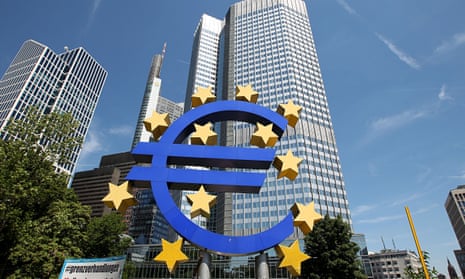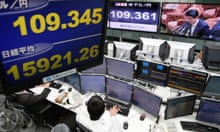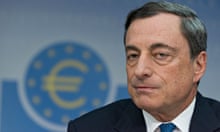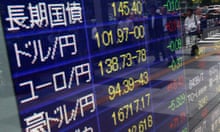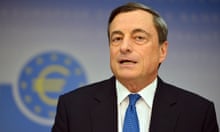Eurozone inflation edged slightly higher in October but economists warned it would provide little relief for policymakers attempting to ward off deflation in the single currency bloc.
Annual inflation increased to 0.4% from 0.3% in September according to a first estimate by Eurostat, the EU statistics agency, remaining well below the European Central Bank’s target of close to, but below, 2%. It was nudged up by higher prices in the services sector, higher food, alcohol and tobacco prices, and a smaller fall in energy prices compared with September.
But core inflation, which strips out volatile items including energy and food, fell to 0.7% in October from 0.8% in September.
Martin van Vliet, economist at ING, said the slight rise in headline inflation did little to take the pressure off policymakers at the European Central Bank (ECB). “The low core inflation reading for October will reinforce concerns about deflationary risks in the eurozone and hence keeps pressure on the ECB to take further stimulative action.
“Given the recent, sharp drop in commodity prices, we do not expect the food and energy component to provide further upward pressure to the headline rate in coming months – if anything, renewed downward pressure may be in the pipeline. Against this backdrop and with eurozone economic growth lacklustre, the ECB will likely remain under pressure to do more to steer inflation back to their target.”
The ECB has taken action in recent months to breathe some life back into the flagging eurozone economy and prevent a damaging deflationary spiral, where businesses and consumers put off purchases with the expectation that prices will fall further.
However, the central bank has so far stopped short of creating money to make large-scale purchases of government bonds.
Christian Schulz, senior economist at Berenberg, said: “The latest economic rough patch may further delay the long-expected gradual rebound in inflation and will probably trigger more discussions about further easing at the upcoming meetings.”
The eurozone unemployment rate was unchanged at 11.5% in September, a separate report from Eurostat showed. The number of people out of work fell by 19,000 over the month, to 18.35m.
Germany had the lowest jobless rate at 5%, while Greece and Spain had the highest rates at 26.4% and 24% respectively.
Howard Archer, chief European and UK economist at IHS Global Insight, said despite the drop in the number of unemployed people in September, unemployment fell at a slower rate in the third quarter than the second. “Eurozone unemployment continued to fall in September, but there are hints that recent stuttering economic activity and more fragile business confidence has temporarily at least slowed already very limited improvement in labour markets,” he said.
The eurozone economy failed to grow in the second quarter, while German GDP shrank by 0.2%, raising the prospect of a technical recession if Europe’s largest economy contracts in the third quarter.
Sir Martin Sorrell, chief executive of advertising group WPP, said Germany and much of the rest of Western Europe were challenging markets. “It’s going to be tough for Germany. Western continental Europe is not a pretty place at the moment,” he said, as WPP gave a trading update.
As the eurozone is easing monetary policy to ward off deflation, Russia’s central bank raised its key interest rate to 9.5% from 8% in an attempt to address a sliding rouble and tackle inflation.
